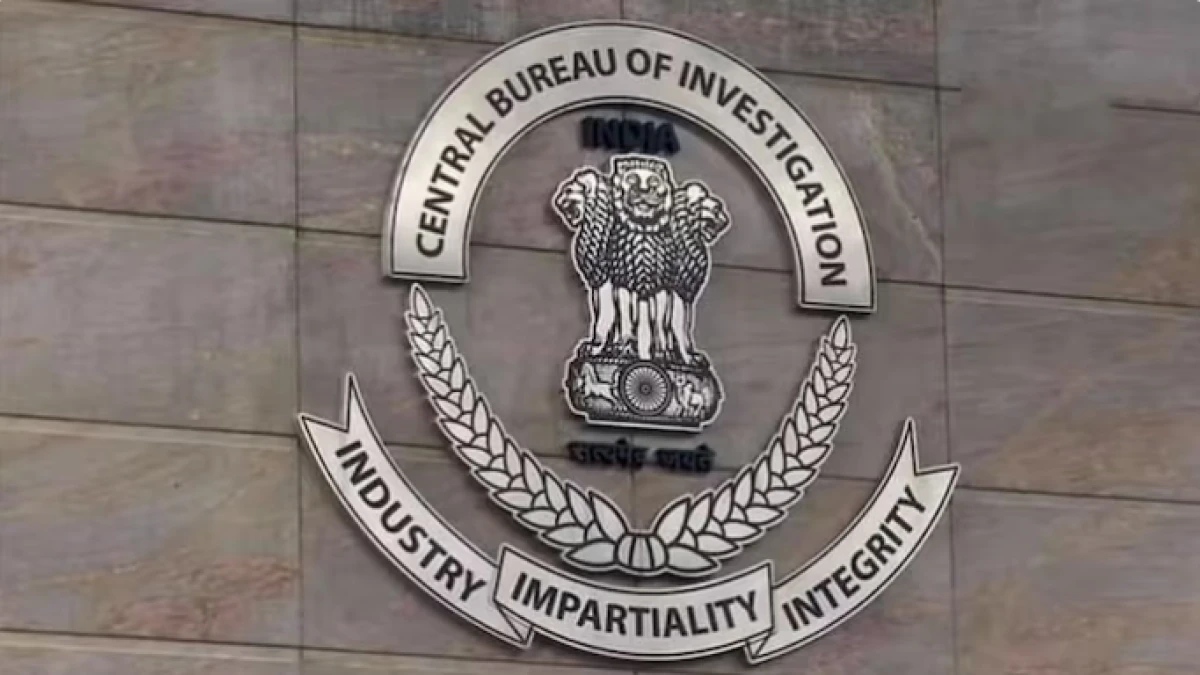The Central Bureau of Investigation (CBI) is India’s premier investigative agency, responsible for solving complex criminal cases ranging from corruption to terrorism. Within this prestigious organization, the forensic department plays a crucial role in analyzing evidence, reconstructing crime scenes, and providing scientific support to investigations. Forensic professionals in the CBI are vital in helping solve cases through their expertise in various scientific disciplines.
If you are passionate about criminal investigations and science, a job in the CBI’s forensic department could be the perfect career path. In this comprehensive guide, we will walk you through the essential steps on how to get a job in the CBI forensic department, including eligibility criteria, qualifications, and the recruitment process.
What Is the CBI Forensic Department?
The CBI forensic department is tasked with the scientific examination of evidence collected during investigations. The department uses advanced tools and technologies to assist CBI officers in solving cases. Forensic professionals in this department work in specialized areas such as DNA analysis, ballistics, toxicology, cyber forensics, fingerprint analysis, and more. They play a pivotal role in ensuring the integrity and accuracy of the evidence presented in court.
Forensic experts in the CBI must possess a unique blend of scientific knowledge, analytical skills, and attention to detail. Their work often involves working closely with law enforcement officers, legal teams, and other experts to provide scientific analysis that stands up in court.
How to Get a Job in CBI Forensic Department
The process of getting a job in the CBI forensic department is competitive and requires specific qualifications, skills, and preparation. The following steps outline how you can pursue a career in this challenging yet rewarding field.
Educational Qualifications for CBI Forensic Jobs
To work in the CBI forensic department, candidates need to have strong academic credentials in science, particularly in specialized fields of forensic science. Here’s a breakdown of the necessary educational qualifications:
- Bachelor’s Degree in Forensic Science: A bachelor’s degree in forensic science is the minimum qualification required to apply for forensic positions. This degree typically covers topics such as crime scene investigation, DNA analysis, toxicology, and digital forensics.
- Relevant Specializations: Depending on your area of interest, you may pursue degrees in specific fields like chemistry, biology, physics, or computer science with a focus on forensic applications.
- Master’s Degree (Optional but Preferred): While a bachelor’s degree qualifies you for entry-level positions, a master’s degree in forensic science or a related field can give you a competitive edge. Advanced courses in specialized subjects like cyber forensics, ballistic analysis, or toxicology can make you more desirable to the CBI.
- PhD (For Senior-Level Positions): Forensic experts aiming for higher positions or research roles within the CBI might pursue a PhD in a specific forensic science discipline. This qualification is essential for roles requiring advanced expertise and leadership within the forensic department.
Eligibility Criteria for CBI Forensic Department
Apart from academic qualifications, candidates must also meet certain eligibility criteria to apply for forensic roles in the CBI. These include:
- Age Limit: The minimum age requirement is generally 20 years, and the maximum age limit varies based on the role and category. The typical upper age limit is around 30 years, but age relaxations are provided for reserved categories (SC/ST/OBC) and departmental candidates.
- Nationality: The candidate must be an Indian citizen.
- Physical and Mental Fitness: Candidates must be physically and mentally fit to perform their duties in the CBI. Medical examinations may be conducted as part of the recruitment process.
Skills Required for CBI Forensic Jobs
Forensic experts in the CBI need a combination of technical skills and soft skills to perform their duties effectively. Here are some of the key skills required:
- Analytical Thinking: Forensic scientists must have strong analytical skills to interpret complex data and evidence.
- Attention to Detail: Given the precision required in forensic investigations, attention to detail is crucial for accurate analysis and reporting.
- Scientific Expertise: Knowledge of scientific techniques, equipment, and procedures is essential to handle various types of forensic evidence.
- Problem-Solving Skills: Forensic experts are often tasked with piecing together information from various sources to help solve crimes.
- Communication Skills: Strong written and verbal communication skills are necessary to present findings clearly, both in reports and in court.
- Technological Proficiency: Familiarity with advanced forensic tools, software, and laboratory equipment is important for processing and analyzing evidence.
Recruitment Process for CBI Forensic Department
The recruitment process for the CBI forensic department is rigorous and involves multiple stages. Here is an overview of the general recruitment steps:
1. Qualify for SSC Exams
Most forensic experts in the CBI are recruited through the Staff Selection Commission (SSC) examination. The SSC conducts various exams, including the Combined Graduate Level Examination (SSC-CGL), which is used to recruit candidates for different roles in government departments, including the CBI.
To become eligible for the CBI forensic department, you must first clear the SSC-CGL exam. Here’s a breakdown of the steps:
- SSC-CGL Tier 1: This is a computer-based test (CBT) that includes subjects such as general intelligence, reasoning, quantitative aptitude, and English comprehension.
- SSC-CGL Tier 2: This is an advanced level CBT that tests quantitative abilities, English language skills, and general knowledge.
- SSC-CGL Tier 3: This is a descriptive paper in which candidates are tested on their writing skills in English or Hindi.
- SSC-CGL Tier 4: Depending on the role, candidates may also undergo a computer proficiency test or skill test.
2. Additional Forensic Science Entrance Exams
In addition to SSC exams, there are specialized forensic science entrance exams that candidates can take, particularly for forensic scientist positions. Some of the popular entrance exams for forensic roles include:
- State Public Service Commission Exams (for state-level forensic roles)
- Union Public Service Commission (UPSC) Exams
- University-Level Forensic Science Exams for those pursuing further academic credentials in forensic science.
3. Direct Recruitment via CBI
Occasionally, the CBI also recruits forensic professionals directly through job postings and advertisements on their official website. Keep an eye on the CBI’s official recruitment page and the Employment News for notifications on forensic science vacancies.
4. Interview and Selection Process
Once you pass the written exams, you may be called for an interview and further screening. The selection process typically includes:
- Document Verification: Academic and other relevant certificates are verified.
- Personal Interview: You will face a panel of experts who will assess your technical knowledge, problem-solving abilities, and understanding of forensic science.
- Medical Examination: A medical exam is conducted to ensure the candidate is fit for duty.
Training After Selection
After being selected for the forensic department, candidates undergo a comprehensive training program at CBI Training Academy in Ghaziabad or at other specialized forensic institutes. The training covers both theoretical knowledge and practical skills necessary for the job. It includes hands-on sessions in forensic laboratories, crime scene analysis, evidence handling, and courtroom procedures.
Career Progression in CBI Forensic Department
The CBI offers a clear career path for forensic professionals. As you gain experience and demonstrate your skills, you can advance through the ranks to more senior roles. Common career progression stages include:
- Junior Forensic Scientist
- Forensic Scientist
- Senior Forensic Scientist
- Head of Department (Forensics)
Promotion is generally based on experience, performance, and additional qualifications. Continuous professional development through advanced training and certifications can further enhance your career prospects within the CBI forensic department.
How to Stay Updated on CBI Forensic Job Opportunities
To stay informed about job opportunities in the CBI forensic department, it is essential to:
- Regularly Check CBI’s Official Website: The CBI posts notifications for vacancies and recruitment details on their official website.
- Follow Employment News: Government job vacancies, including those in the CBI, are often published in the weekly Employment News.
- Network with Forensic Science Professionals: Attending forensic science seminars, workshops, and conferences can help you network with professionals who may provide insights into upcoming job opportunities.
FAQs
1. How can I become a forensic scientist in the CBI?
Ans – To become a forensic scientist in the CBI, you need to have a degree in forensic science or a related field, qualify in the SSC-CGL exam, and pass the recruitment process, including interviews and medical examinations.
2. What is the salary of a forensic scientist in the CBI?
Ans – The salary of a forensic scientist in the CBI can range between INR 40,000 to INR 1,00,000 per month, depending on the position and experience level.
3. Are there any age relaxations for reserved categories in CBI forensic recruitment?
Ans – Yes, age relaxations are provided for candidates belonging to reserved categories (SC/ST/OBC), as per government regulations.
4. Can I join the CBI forensic department directly after completing my B.Sc. in forensic science?
Ans – Yes, candidates with a B.Sc. in forensic science are eligible to apply for forensic roles in the CBI. However, you must clear the SSC-CGL exam or other relevant entrance exams.
5. What is the role of a forensic scientist in the CBI?
Ans – A forensic scientist in the CBI is responsible for analyzing physical evidence, conducting laboratory tests, and providing expert testimony in court to assist in criminal investigations.
6. How long does the recruitment process for the CBI forensic department take?
Ans – The recruitment process can take several months, depending on the number of applicants, the complexity of the exams, and the interview schedule.
Conclusion
A career in the CBI forensic department offers the opportunity to play a vital role in solving some of the country’s most complex criminal cases. By following the steps outlined in this guide, you can work toward achieving your dream of becoming a forensic scientist with the CBI. With the right qualifications, dedication, and preparation, you can secure a job in this prestigious organization and contribute to justice through scientific expertise.



